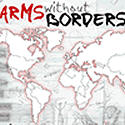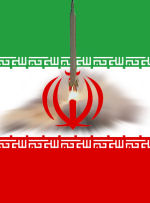 If I said that the U.S. defense export community might actually applaud a report from Amnesty International, you would probably say that I need a vacation. I do, in fact, need a vacation, but that is not why I’m saying that the new report Arms Without Borders, released on Monday, might be received favorably by certain members of the defense industry.
If I said that the U.S. defense export community might actually applaud a report from Amnesty International, you would probably say that I need a vacation. I do, in fact, need a vacation, but that is not why I’m saying that the new report Arms Without Borders, released on Monday, might be received favorably by certain members of the defense industry.
The Amnesty report does advocate the adoption of an international arms control treaty, which, at first glance, wouldn’t appear to be at the top of most defense companies’ wish lists. But, the report advocates the international treaty to level the playing field among companies in different countries. A global treaty would eliminate any competitive disadvantage for manufacturers in the United States or Europe, countries with relatively strict arms control regimens, when compared to manufacturers in countries with emerging defense industries, countries which, for the most part, have lax or non-existent controls on arms exports.
The report identifies Israel, India, South Korea, Brazil, Singapore and South Africa as emerging exporters of defense articles and notes the absence of robust controls in those countries. As to India, for example, the report says this:
In 2001, India removed its prohibition on foreign investment in its arms sector, in order to allow, according to Jane’s Defence Industry, ‘badly needed technology transfers’. Now, the production of conventional arms is another area where India is becoming globally competitive.
In 2002, India’s Defence Minister, George Fernandes, announced the scrapping of a government ‘blacklist’ of countries too sensitive for arms to be exported to. Since 2003, India has reportedly exported to Myanmar and Sudan, both of which, according to the UN, systematically violate human rights, and are now subject to EU and UN arms embargoes respectively.
The report also focuses on the consequences of manufacturers licensing production of defense articles in countries with less stringent export controls:
When companies license production overseas, the weapons and other military or security equipment produced may be destined for the legitimate security forces of the country where the arms are made, or they may be destined for the export market. However, few, if any governments have brought in effective controls over licensed production deals. As a result, they retain little or no control over production levels or the onward export of arms produced overseas under licence from companies within their jurisdiction.
The report then notes that the United States alone attempts to address this problem through its proviso, when approving manufacturing license agreements outside the United States, that prohibits exports of the manufactured item without a U.S. license for such export.
Inadequate controls on re-exports, on arms brokers, and on exports of dual-use goods that are converted to military use are all singled out by the report. In each of these instances, current U.S. export law addresses these problems in one fashion or another. The call by Arms Without Borders for uniform global approaches to these could well benefit U.S. industry, which will increasingly see competition from countries with less robust controls.
 OFAC announced last week that it had reached a settlement with Koch Foods, a major chicken processing firm, arising out of shipments by Koch to Iraq in August 2002. The OFAC announcement follows OFAC’s general policy of providing minimal guidance to the export community and, thus, has few details of Koch’s violation other than this:
OFAC announced last week that it had reached a settlement with Koch Foods, a major chicken processing firm, arising out of shipments by Koch to Iraq in August 2002. The OFAC announcement follows OFAC’s general policy of providing minimal guidance to the export community and, thus, has few details of Koch’s violation other than this:
 Posted by
Posted by  Category:
Category: 

 With each export violation for an item on the Commodity Control List, there is always the possibility that not only will the exporter have BIS to deal with, but also the freight forwarder and shipper will have an unpleasant encounter with the agency. This is a lesson that
With each export violation for an item on the Commodity Control List, there is always the possibility that not only will the exporter have BIS to deal with, but also the freight forwarder and shipper will have an unpleasant encounter with the agency. This is a lesson that  Earlier we
Earlier we  If I said that the U.S. defense export community might actually applaud a report from Amnesty International, you would probably say that I need a vacation. I do, in fact, need a vacation, but that is not why I’m saying that the new report
If I said that the U.S. defense export community might actually applaud a report from Amnesty International, you would probably say that I need a vacation. I do, in fact, need a vacation, but that is not why I’m saying that the new report  On Saturday, President Bush
On Saturday, President Bush 

